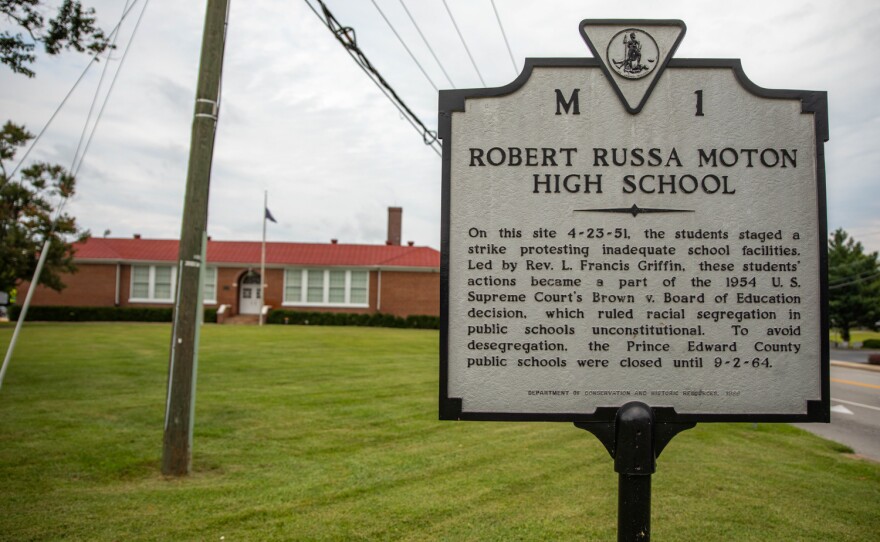Three national civil rights organizations have teamed up to launch a new campaign in response to Gov. Glenn Youngkin’s tip line to report “inherently divisive concepts.” The groups are urging Virginians to tell Youngkin that it’s time to confront the nation’s history of racism in the classroom.
“Make no mistake about it, Black history is American history. And as we tell the full story of our people, it only makes the community in which we live, the communities in which we live in, the Commonwealth in which we live in, and the residents of this Commonwealth better people,” said Wes Bellamy, a political science professor at Virginia State University.
“You don't become a worse person by being exposed to the truth. You don't become a worse person by truly understanding what's transpired. In fact, you become a more well-rounded individual when you understand some of the intricacies of not only where you live, but the history of what's transpired right here right now.”
Amy Tillerson-Brown, education chair for Virginia NAACP and dean of the Mary Baldwin College for Women, points to the story of Barbara Johns, who in 1951 at the age of 16 led a student walkout at Robert Russa Moton High School in Prince Edward County to protest the deplorable conditions of tar paper shacks Black students were learning in. The walkout eventually led to a lawsuit that became part of the historic Brown v. Board of Education case.
“Barbara Johns existed during a period of history where Black people were not treated equally to white people, not because of their economic class, but because of their race,” Tillerson-Brown said. “There were not signs on water fountains that said rich only; instead, whites only.”
Because it was race that determined access to certain schools and jobs, Tillerson-Brown says she’s worried stories like this one could be deemed divisive and prohibited from being taught in Virginia schools.
Though Virginia lawmakers did not pass legislation banning the teaching of “inherently divisive concepts,” many worry that a lack of clear definition about what the concept means could lead to a white-washed version of history being taught.
“This historical reality makes some people uncomfortable, as it requires students to critique the historical circumstances that allowed this race-based inequity,” she said.
That’s why the NAACP, along with the Leadership Conference Education Fund and People For the American Way, have launched a campaign to shed light on other lessons important to Black history including Virginia’s historic role in perpetuating racist policies.
“Barbara Johns’ activism resisted laws in our Commonwealth that privileged whites,” Tillerson-Brown said.
Tillerson-Brown pointed to a February 2019 memo from former Virginia education secretary James Lane, pointing to resources to support students and community members engage in dialogues about racism. That memo was rescinded because according to Jillian Balow, its “reading lists advance the use of CRT in education.” Several other resources related to educational equity were rescinded for promoting “teaching social justice, systemic inequality and anti racist policies that are consistent with critical race theory.”
“The alternative to promoting the teaching of social justice is the promoting of teaching social injustice,” Tillerson-Brown said. “Which is what effectively happens when history that includes activism, like Barbara Johns’, is eliminated from history curriculums.”



